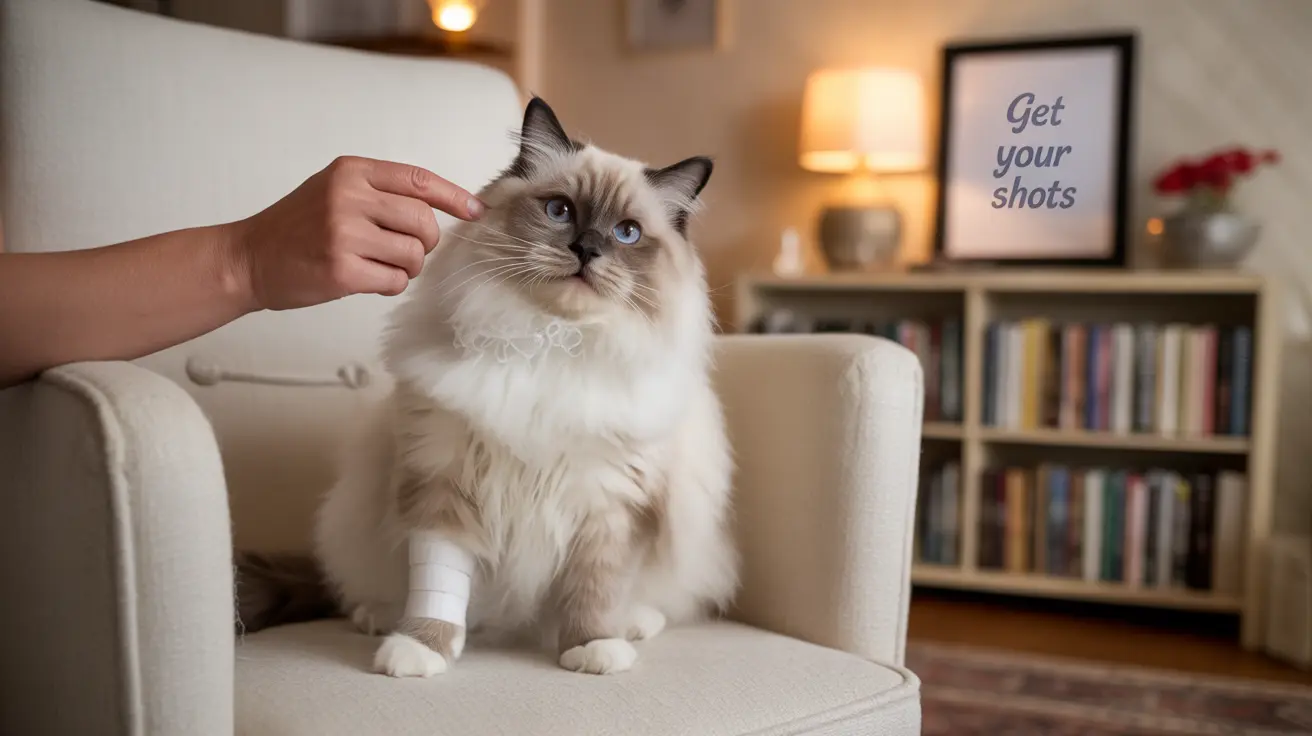Vaccinating your cat against rabies is a crucial responsibility for every pet owner. While the rabies vaccine is both safe and legally required in most areas, it's natural to have questions about potential side effects. This comprehensive guide will help you understand what to expect after your cat receives their rabies vaccination.
As a pet owner, being informed about vaccine reactions helps you distinguish between normal responses and situations that require immediate veterinary attention. Let's explore the various aspects of rabies vaccination and its effects on cats.
Common Side Effects and What to Expect
Most cats experience minimal to no side effects following their rabies vaccination. When side effects do occur, they're typically mild and resolve within a few days. Common reactions include:
- Mild fever lasting 24-48 hours
- Temporary lethargy or decreased activity
- Reduced appetite for 1-2 days
- Slight swelling or tenderness at the injection site
These reactions actually indicate that your cat's immune system is responding appropriately to the vaccine, building protection against the rabies virus.
Recognizing Serious Reactions
While extremely rare, serious adverse reactions can occur. Modern rabies vaccines have significantly reduced the risk of severe complications, with fewer than 0.001% of cats experiencing significant adverse effects. However, it's essential to know the warning signs:
- Facial swelling or hives
- Severe vomiting or diarrhea
- Difficulty breathing
- Collapse or extreme weakness
- Seizures or neurological symptoms
If you observe any of these symptoms, seek immediate veterinary care.
Vaccination Schedule and Administration
Following the proper vaccination schedule is crucial for maintaining your cat's protection against rabies:
- Initial vaccination at 12 weeks of age
- First booster one year later
- Subsequent boosters every 1-3 years, depending on local regulations and vaccine type
Your veterinarian will determine the appropriate schedule based on your cat's age, health status, and local requirements.
Modern Vaccine Safety Improvements
Today's rabies vaccines are safer than ever, thanks to significant advancements in veterinary medicine. Non-adjuvanted vaccines have largely replaced older formulations, dramatically reducing the risk of injection-site reactions and other complications.
These modern vaccines maintain excellent effectiveness while minimizing the already low risk of adverse effects, making them a safer choice for your feline companion.
Monitoring Your Cat Post-Vaccination
After vaccination, observe your cat for the first 24-48 hours. Most mild reactions appear within this timeframe and resolve naturally. Keep your cat comfortable and maintain normal feeding and activity schedules unless otherwise advised by your veterinarian.
Frequently Asked Questions
What are the common side effects of the rabies vaccine in cats and how long do they typically last?
Common side effects include mild fever, lethargy, reduced appetite, and local swelling at the injection site. These typically last 24-48 hours and resolve without treatment.
How can I recognize if my cat is having a serious allergic reaction to the rabies vaccine?
Serious allergic reactions typically manifest as facial swelling, hives, severe vomiting, difficulty breathing, or collapse. These symptoms usually appear within hours of vaccination and require immediate veterinary attention.
Are there any long-term risks, such as tumor formation, associated with rabies vaccination in cats?
Modern non-adjuvanted vaccines have significantly reduced the risk of injection-site sarcomas. The estimated risk is now less than 1 in 10,000 vaccinations, making it extremely rare.
When should kittens receive their first rabies vaccine and how often are booster shots needed?
Kittens typically receive their first rabies vaccine at 12 weeks of age, followed by a booster one year later. Subsequent boosters are given every 1-3 years, depending on local regulations and vaccine type.
How do modern non-adjuvanted rabies vaccines compare to older vaccines in terms of safety for cats?
Modern non-adjuvanted vaccines are significantly safer than older formulations, with a lower risk of injection-site reactions and complications while maintaining excellent effectiveness against rabies.
Remember, while side effects from rabies vaccines are possible, they're generally mild and short-lived. The protection these vaccines provide far outweighs the minimal risks, helping keep both your cat and your community safe from this deadly disease.






